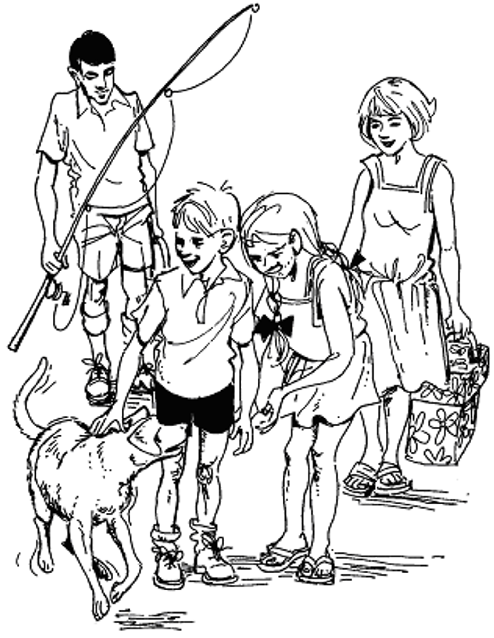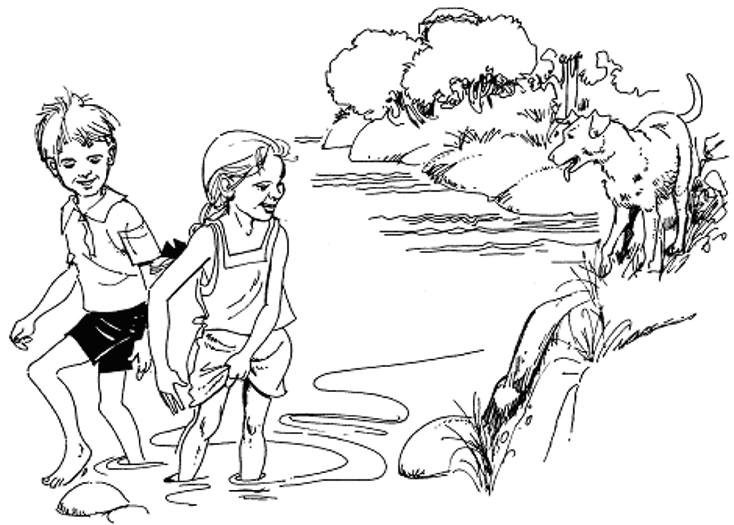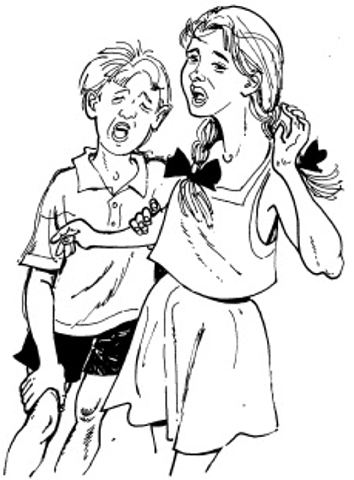| << Chapter < Page | Chapter >> Page > |
Using progress reports and profiles of the learners in Grade 1, the Grade 2 educator can assess the ability of each learner in the class.
The Grade 2 educator also needs to know which work has been covered in Grade 1 so that she can revise, consolidate and re-teach where necessary, before proceeding to the Grade 2 phonics, writing, reading etc. Make sure the learners understand the written instructions on each page. The learners furthermore need to know where and when to go for help when doing written work e.g. finding out how to spell a word etc.
The slower learners need continual support whereas the fast learners can be given additional work based on the activities for further stimulation.
All learners should complete all seven modules during the year. Allow them to progress at their own speed covering ± one and a half modules per term.
The different stories of heroes initiate interesting activities for the learners. The term “hero” is discussed and different “heroes” are discussed.
Opportunity is given for research from newspapers and their imagination is stimulated as they create, describe and illustrate their own heroes.
ea as in leaf
ea as in bread
ea as in ear
ea as in pear
oi and oy
integration of themes
DISCUSS
Josh and his family were going on a picnic. Everyone was ready to leave. Mom packed a tasty lunch and Dad had his fishing rod. Josh and his sister Ann had toys to play with. As they were leaving, their dog Smarty came running up.
“Can he come too?” said Ann.
“No,” said Dad. “He’ll scare the fish away!”
“I’ll watch him, Dad. Promise!” said Ann.
“All right,” said Dad. “Just hurry up and get into the car”.

When they arrived at the picnic spot, Dad set off for the river. Mom took out her book and told the children to be careful and to keep Smarty away from Dad. Josh and Ann had brought nets. They found a small pool where the water was calm and began looking for fish in the clear. Smarty stayed on the bank and barked when they went into the water.
“He doesn’t like it if we go in too far,” said Ann.

Suddenly Josh slipped on a rock. “Ow!” he said, as he fell into the water. Ann began to laugh and then saw that Josh was crying.
“My ankle! It’s so sore. It must be broken or something.”
“I’ll go and get Dad,” said Ann.
“No. Don’t leave me!” said Josh.
“What else can I do? I have to get help,” said Ann.
“We can shout to him. He’s not far.” Josh was clinging to Ann. They began to shout for their father.

Smarty was worried when the children began shouting. He began barking too. But Dad could not hear them over the sound of the rushing river. Smarty ran back to Dad. He was barking madly. Dad was angry.
“I told you he would scare the fish away. Ann! Come and fetch him!” Smarty only barked more loudly. Then he picked up the fish that Dad had caught and ran away with it. Dad was furious. He dropped his rod and ran after Smarty.

Smarty ran to the place where he had left the children. They were still calling for their father. Dad rushed to help them.
“Thank goodness you heard us!” said Ann.
“I didn’t!” said Dad. “I was chasing Smarty. He stole my fish.”
“He knew it would bring you to us!” said Ann. “Oh, isn’t he clever!”
“Well, I don’t know …,” said Dad. He carried Josh out of the water and carried him to the car. Ann ran ahead.
“Mom!” she shouted. “Smarty is a hero! He saved Josh.”
Questions for discussion:
1. How did Smarty save Josh?
2. Do you think he was really calling Dad?
3. Have you ever helped anyone?
In your groups, act out the rescue scene. Think of another way to get Dad to help Josh.
| LO 1.1 | LO 2.3 | LO 3.3 |
Learning Outcome 1: LISTENING : The learner is able to listen for information and enjoyment and respond appropriately and critically in a wider range of situations.
Assessment Standard 1.1: We know this when the learner listens attentively for a longer period (with extended concentration span) and responds to an extended sequence of instructions;
Learning Outcome 2: SPEAKING : The learner is able to communicate confidently and effectively in spoken language in a wide range of situations.
Assessment Standard 2.3: We know this when the learner creates and tells stories with a beginning, middle and ending, using descriptive language and avoiding repetition.
Learning Outcome 3: READING AND VIEWING : The learner is able to read and view for information and enjoyment and respond critically to the aesthetic, cultural and emotional values in texts.
Assessment Standard 3.3: We know this when the learner recognises and makes meaning of letters and words in longer texts.

Notification Switch
Would you like to follow the 'English home language grade 2' conversation and receive update notifications?